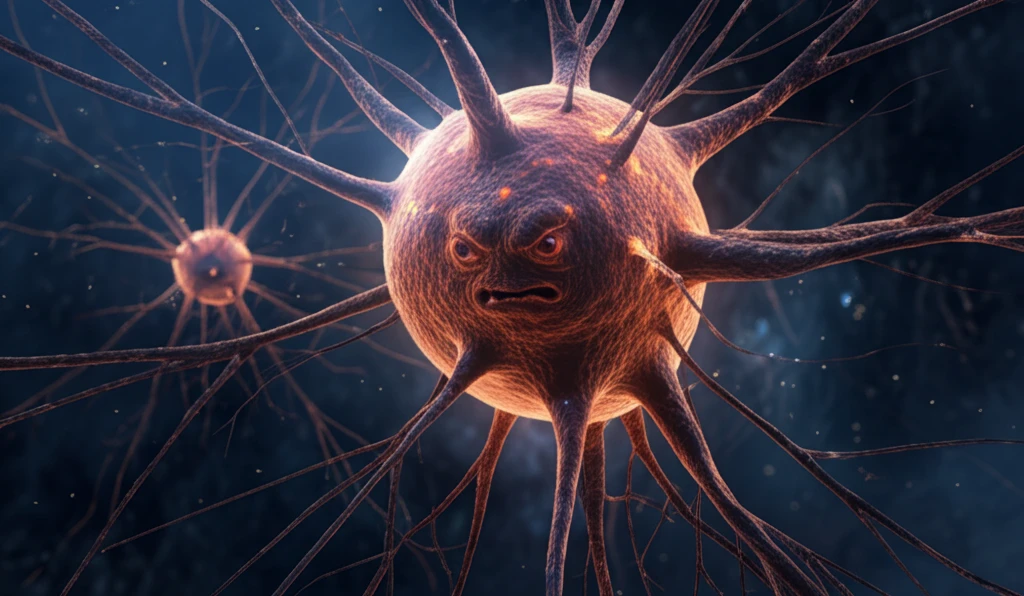
Cancer's Silent Partner: How Nerves Influence Drug Resistance
"Unraveling the complex interplay between the nervous system and cancer treatment efficacy."
For decades, cancer treatment has primarily focused on the malignant cells themselves. Chemotherapy, radiation, targeted therapies, and, more recently, immunotherapies have all aimed to eradicate tumors or control their growth. While progress has been made, a significant hurdle remains: drug resistance. Cancers often evolve, finding ways to evade the effects of even the most potent treatments, leading to relapse and poorer outcomes.
But what if the tumor itself isn't the only culprit? Emerging research suggests a surprising partner in cancer's resistance: the nervous system. This complex network, responsible for everything from our thoughts and emotions to our stress response, appears to play a significant role in how cancers respond (or don't respond) to treatment.
This article delves into the fascinating connection between nerves and cancer, exploring how neural signals can influence drug resistance and highlighting potential new strategies to improve cancer therapy by targeting this unexpected alliance.
The Nerve-Cancer Connection: A Two-Way Street

The relationship between the nervous system and cancer is not a one-way street. Tumors are not simply passive recipients of neural signals; they actively communicate with the nervous system, creating a complex feedback loop that can promote tumor growth and resistance.
- Nerve Infiltration: Solid tumors are often innervated by sympathetic nerve fibers. These fibers release neurotransmitters that can influence tumor cell behavior.
- Neurotrophic Factors: Tumor cells can produce neurotrophic growth factors, such as nerve growth factor (NGF) and brain-derived neurotrophic factor (BDNF). These factors stimulate the growth of sympathetic and sensory nerves, further enhancing the connection.
- The Stress Response: Chronic stress can lead to the prolonged secretion of neuroendocrine hormones like epinephrine, norepinephrine, and cortisol. These hormones can impact the effectiveness of cancer treatments.
Future Directions: Targeting the Neural Landscape of Cancer
The emerging understanding of the nerve-cancer connection opens up exciting new avenues for improving cancer treatment. By targeting the neural signaling pathways that contribute to drug resistance, researchers hope to develop more effective therapies that can overcome this significant hurdle. Several strategies are being explored, including:
